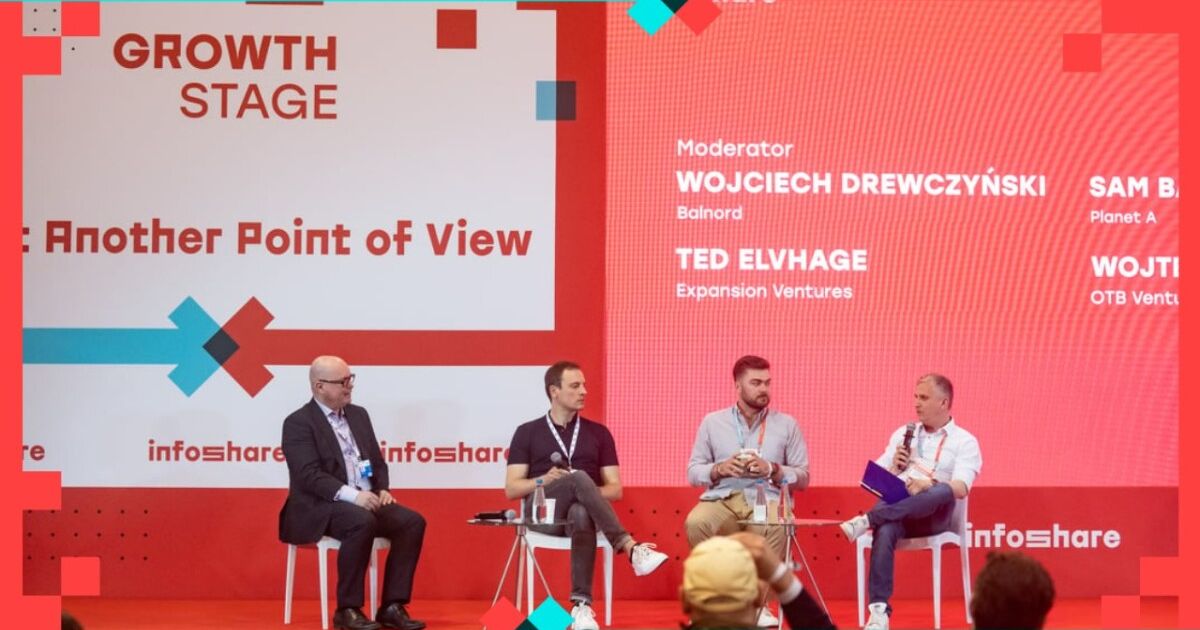VIEW SPEECH SUMMARY
1. Technological Gaps and Priorities in Europe
- Major gaps identified in space, defense, and energy sectors.
- Dependence on non-European supply chains and critical materials, including rare minerals.
- Energy, specifically cheap and sustainable energy, is a fundamental concern underpinning all technological advancement.
- Emphasis on European autonomy without complete isolation; collaboration globally but with strong trade and bargaining positions.
2. Strategic Focus Areas and Realism in Tech Development
- Europe should prioritize areas where full sovereignty is achievable and explore alternative approaches for those where it's not (e.g., critical minerals, general-purpose AI).
- Climate technologies align with strategic goals, particularly renewable energy and possibly nuclear energy, to ensure sustainable independence.
- Importance of inter-member state collaboration to leverage resources and technology development.
3. Role of Venture Capital in Europe
- VC firms bring agility, speed, risk-taking, and talent discovery crucial for early-stage innovation.
- VCs should focus on early-stage, high-risk projects rather than capital-intensive scale-ups (e.g., nuclear power).
- VCs need to promote a culture that is comfortable with failure to foster innovation and growth.
- There is enough capital in Europe but a knowledge gap in deploying it effectively, especially connecting alternative capital providers with startups.
4. Strategic Independence: Buzzword or Real Change?
- Sovereignty is recognized as a serious and necessary goal beyond hype.
- Strategic independence is vital for protecting lifestyle, sustainability, and peace in Europe.
- VC investments must be global in outlook yet support technology sovereignty.
5. Key Players for Building Tech Independence
- Founders and entrepreneurs are the primary drivers; governments and VCs support but do not create without them.
- Collaboration among European countries and integration of talent, including returning diaspora and academia, are strengths.
6. Regional Strengths in Europe
- France leads in AI, aerospace, defense, energy, and nuclear sectors.
- Sweden is notable in defense technologies and defense manufacturing.
- UK remains significant though currently perceived as in a downtrend.
- Eastern Europe, particularly Poland, has modern industrial infrastructure and talent that could drive innovation in manufacturing and technology adaptation.
7. Misconceptions in European Deep Tech Investing
- Many confuse VC investment with software-as-a-service models rather than real deep tech.
- Deep tech often requires long-term capital with companies losing money initially.
- Peace, democracy, and technological sovereignty come at a cost that must be accepted.
- ESG considerations do not always apply straightforwardly to defense technologies which are critical for peace and security.
8. Suggested Actions to Accelerate European Tech Sovereignty
- Unlock and redirect existing capital more effectively toward innovation.
- Produce abundant cheap and sustainable energy.
- Support initiatives like EU Inc. to harmonize company incorporation processes to facilitate collaboration.
- Encourage pension funds and retail investors to channel money into venture capital and direct investments.
- Cultivate anchor customers in corporations and governments to purchase and support European tech products.
9. Highlighted Portfolio Companies Impacting European Tech Sovereignty
- Makersite: AI-driven supply chain analysis aiding resilience and emissions transparency.
- Atmos Space Cargo: Developing Europe’s reusable space return vehicle for civilian and defense applications.
- ExoBiosphere: Using space-based bio-testing to accelerate pharmaceutical advancements leveraging Atmos Space Cargo's technology.
Actionable Items:
- Focus investment and policy on filling strategic gaps in space, defense, energy, and supply chains of critical materials.
- Promote sustainable and self-sufficient energy production within Europe.
- Encourage VCs to support early-stage deep tech founders willing to take risks and innovate.
- Educate investors and ecosystem players about deep tech timelines and capital needs.
- Foster a European-wide culture that embraces failure and risk as part of technological progress.
- Push for regulatory and structural initiatives like EU Inc. to ease company scaling and collaboration.
- Mobilize pension funds and retail capital toward VC and strategic technologies.
- Engage corporations and governments as primary customers of new strategic technologies.
- Major gaps identified in space, defense, and energy sectors.
- Dependence on non-European supply chains and critical materials, including rare minerals.
- Energy, specifically cheap and sustainable energy, is a fundamental concern underpinning all technological advancement.
- Emphasis on European autonomy without complete isolation; collaboration globally but with strong trade and bargaining positions.
2. Strategic Focus Areas and Realism in Tech Development
- Europe should prioritize areas where full sovereignty is achievable and explore alternative approaches for those where it's not (e.g., critical minerals, general-purpose AI).
- Climate technologies align with strategic goals, particularly renewable energy and possibly nuclear energy, to ensure sustainable independence.
- Importance of inter-member state collaboration to leverage resources and technology development.
3. Role of Venture Capital in Europe
- VC firms bring agility, speed, risk-taking, and talent discovery crucial for early-stage innovation.
- VCs should focus on early-stage, high-risk projects rather than capital-intensive scale-ups (e.g., nuclear power).
- VCs need to promote a culture that is comfortable with failure to foster innovation and growth.
- There is enough capital in Europe but a knowledge gap in deploying it effectively, especially connecting alternative capital providers with startups.
4. Strategic Independence: Buzzword or Real Change?
- Sovereignty is recognized as a serious and necessary goal beyond hype.
- Strategic independence is vital for protecting lifestyle, sustainability, and peace in Europe.
- VC investments must be global in outlook yet support technology sovereignty.
5. Key Players for Building Tech Independence
- Founders and entrepreneurs are the primary drivers; governments and VCs support but do not create without them.
- Collaboration among European countries and integration of talent, including returning diaspora and academia, are strengths.
6. Regional Strengths in Europe
- France leads in AI, aerospace, defense, energy, and nuclear sectors.
- Sweden is notable in defense technologies and defense manufacturing.
- UK remains significant though currently perceived as in a downtrend.
- Eastern Europe, particularly Poland, has modern industrial infrastructure and talent that could drive innovation in manufacturing and technology adaptation.
7. Misconceptions in European Deep Tech Investing
- Many confuse VC investment with software-as-a-service models rather than real deep tech.
- Deep tech often requires long-term capital with companies losing money initially.
- Peace, democracy, and technological sovereignty come at a cost that must be accepted.
- ESG considerations do not always apply straightforwardly to defense technologies which are critical for peace and security.
8. Suggested Actions to Accelerate European Tech Sovereignty
- Unlock and redirect existing capital more effectively toward innovation.
- Produce abundant cheap and sustainable energy.
- Support initiatives like EU Inc. to harmonize company incorporation processes to facilitate collaboration.
- Encourage pension funds and retail investors to channel money into venture capital and direct investments.
- Cultivate anchor customers in corporations and governments to purchase and support European tech products.
9. Highlighted Portfolio Companies Impacting European Tech Sovereignty
- Makersite: AI-driven supply chain analysis aiding resilience and emissions transparency.
- Atmos Space Cargo: Developing Europe’s reusable space return vehicle for civilian and defense applications.
- ExoBiosphere: Using space-based bio-testing to accelerate pharmaceutical advancements leveraging Atmos Space Cargo's technology.
Actionable Items:
- Focus investment and policy on filling strategic gaps in space, defense, energy, and supply chains of critical materials.
- Promote sustainable and self-sufficient energy production within Europe.
- Encourage VCs to support early-stage deep tech founders willing to take risks and innovate.
- Educate investors and ecosystem players about deep tech timelines and capital needs.
- Foster a European-wide culture that embraces failure and risk as part of technological progress.
- Push for regulatory and structural initiatives like EU Inc. to ease company scaling and collaboration.
- Mobilize pension funds and retail capital toward VC and strategic technologies.
- Engage corporations and governments as primary customers of new strategic technologies.
Europe's Strategic Independence: VC's Role in Investments into Tech Sovereignty
15:25 - 15:55, 28th of May (Wednesday) 2025 / GROWTH STAGE
As geopolitical tensions reshape global technology landscapes, Europe faces a critical challenge: achieving strategic independence through technological sovereignty. Explore how venture capital can be a catalyst for developing the frontier technologies essential to European autonomy and security.
AUDIENCE:
Startup
Scaleup
Profitable Company
TRACK:
Growth
Startup / VC
TOPICS:
Startup
VC






